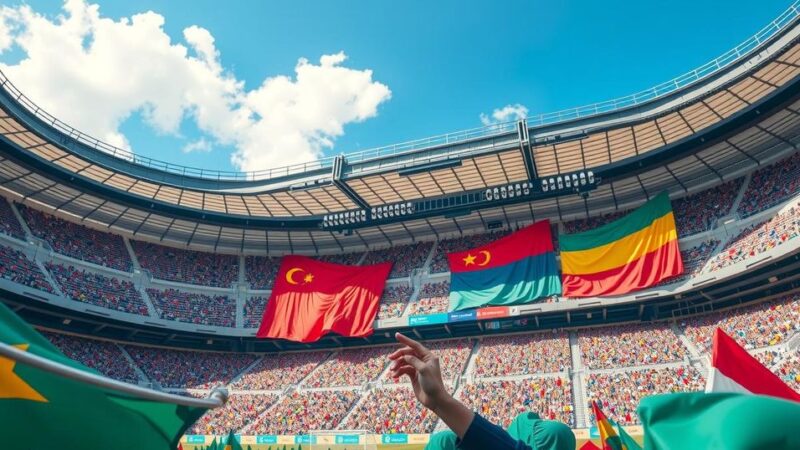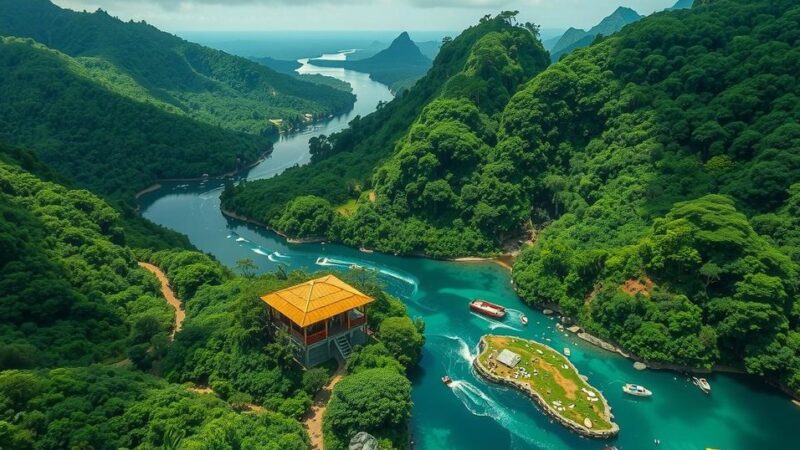Evo Morales, former president of Bolivia, has maintained a stronghold in Lauca Ene, where he is plotting a return to power despite legal challenges. He faces serious allegations but firmly denies them, framing his situation as judicial persecution. His supporters are loyal and prepared to mobilize in defense of their leader, expressing disdain for current President Luis Arce’s administration. As Morales plans to register for a fourth term, tensions are rising within the region.
As night descends on Lauca Ene, a small hamlet in central Bolivia, around 500 Indigenous supporters gather, spears raised, chanting, “Long live Evo Morales!” The former president remains a formidable force in this coca-growing area, with his influence holding firm. Morales, now 65, maintains a strong grip over Lauca Ene, where his approval is essential for anyone wishing to enter the community.
The region of Tropico de Cochabamba, home to approximately 260,000 residents, is dense with forests and storied rivers, and it is where Morales started his journey in the 1980s during union struggles. Despite facing legal obstacles, specifically a court-imposed two-term limit on serving as president, Morales is reportedly plotting a return to power. As the first Indigenous president, he served from 2006 until 2019, rising from severe poverty.
Currently, Morales has taken refuge in Lauca Ene for the past seven months, trying to evade a court warrant related to serious alleged offenses. A recent ruling by one judge annulled the allegations, but another upheld it days later, now focusing on accusations of trafficking a minor. It is claimed that Morales engaged in a relationship with a 15-year-old while he was in office and then fathered a child with her.
Firmly refuting these charges, Morales has called it “judicial persecution.” The police, for their part, have shown reluctance to confront the barricades set up by supportive farmers wielding shields and traditional weapons. Willy Alvarado, a 54-year-old farmer, expressed unwavering loyalty, stating, “We’ll be here until our brother Evo Morales is in the presidency.”
In neighboring areas, however, life continues relatively normally; clinics operate, government offices are functioning, and police presence is felt. But in Lauca Ene, a town of only 900, loyalists are always on guard, ensuring their former leader remains unhindered. Meeting with journalists, Morales, dressed casually, dismissed concerns over the two-term limit, asserting he is “legally and constitutionally qualified” to run again.
Plans are already set for a grand journey to La Paz on May 16, where Morales intends to register for a fourth term—determined to challenge the court and electoral authorities. He warned of potential uprisings from his Indigenous supporters if his candidacy is rejected, reflecting the eagerness for change among his base. Farmer Zenobia Taboada echoed that sentiment, indicating a strong likelihood of protests: “If they touch brother Evo, the people will come out right away.”
Life within Morales’ stronghold remains focused and organized. He lives in a modest three-story building, holding regular meetings with supporters and allies. Nearby, his backers dwell in temporary setups, sharing resources and rotating responsibilities to ensure security at the village’s frontiers.
Farmers continue to take turns guarding the barricades, showing camaraderie and readiness to protect their interests. Vicente Choque, a fellow coca grower, highlighted their preparations: “I have arrows, my companions have spears and shields, in case.” Spirits are high among Morales’ loyalists, who remain poised to act if the situation demands.
At the entrance, a blockade of crossed spears halts any intruders, where chickens and dogs roam freely, a stark reminder of the town’s isolation. Zenobia Andia, who made a long trip to serve her guard duty, criticized the current administration of Luis Arce, Morales’ former ally, expressing nostalgia for Morales’ leadership. “We just want to recover what we had,” she lamented.
In summary, as Evo Morales maneuvers his path back into Bolivian politics amid legal threats and divided public sentiment, his base remains fervently loyal and ready for action, reflecting a potent mix of hope and defiance in the face of uncertainty.
In conclusion, Evo Morales’ stronghold in Lauca Ene serves as a focal point for his political ambitions amidst ongoing legal troubles. Despite a court-imposed two-term limit, Morales aims for a fourth presidential term, leveraging the unwavering support of his Indigenous base. Conversations reveal a mixture of nostalgia and anger directed at the current government, setting the stage for a potentially volatile political landscape as Morales prepares to clash with electoral authorities and maintain his grip on power.
Original Source: www.kten.com






